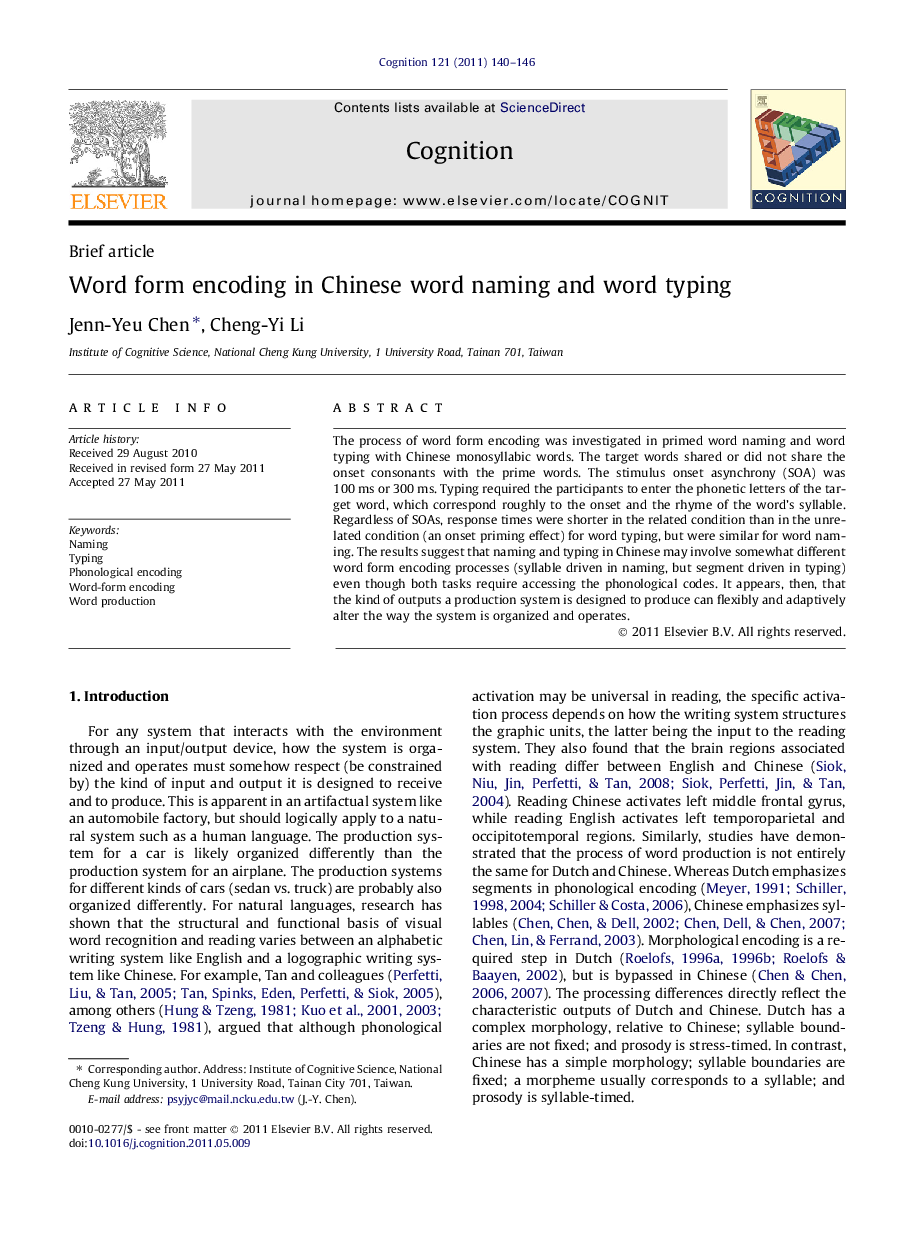| Article ID | Journal | Published Year | Pages | File Type |
|---|---|---|---|---|
| 926480 | Cognition | 2011 | 7 Pages |
The process of word form encoding was investigated in primed word naming and word typing with Chinese monosyllabic words. The target words shared or did not share the onset consonants with the prime words. The stimulus onset asynchrony (SOA) was 100 ms or 300 ms. Typing required the participants to enter the phonetic letters of the target word, which correspond roughly to the onset and the rhyme of the word’s syllable. Regardless of SOAs, response times were shorter in the related condition than in the unrelated condition (an onset priming effect) for word typing, but were similar for word naming. The results suggest that naming and typing in Chinese may involve somewhat different word form encoding processes (syllable driven in naming, but segment driven in typing) even though both tasks require accessing the phonological codes. It appears, then, that the kind of outputs a production system is designed to produce can flexibly and adaptively alter the way the system is organized and operates.
